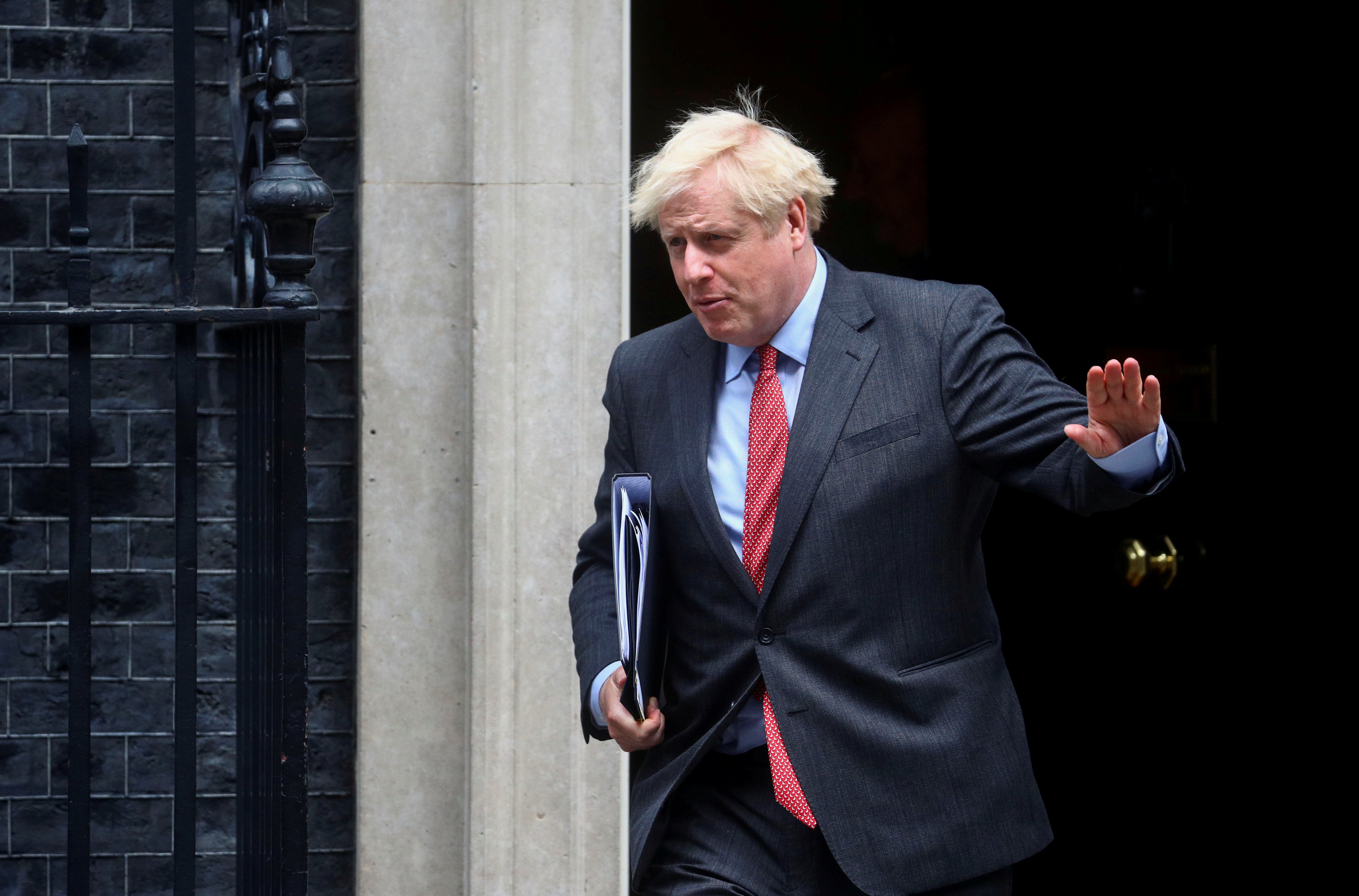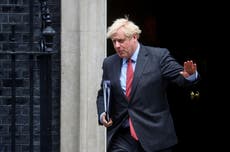Boris Johnson only has himself to blame over the latest parliamentary rebellion
Editorial: Some outside Westminster will see the planned revolt over Covid powers as MPs acting out of self-interest – but on this occasion members are right to stand up for their rights

As if Boris Johnson did not have enough on his plate with a public health and economic emergency and EU trade talks reaching a critical stage, he also faces a serious cross-party Commons rebellion that threatens a humiliating defeat.
Conservative MPs are leading the charge for parliament to have the right to approve in advance the restrictions imposed on the public and business aimed at halting the spread of Covid-19. They threaten to amend the sweeping emergency powers the government took in the Coronavirus Act earlier this year, which have allowed ministers to repeatedly change the rules, with retrospective approval by parliament – often long after they have taken effect. On Wednesday, the powers come up for renewal for another six months.
Some on the right of the Conservative Party have joined the revolt because they want an "economy first" approach and believe Mr Johnson is wrong to put lives before livelihoods (even if they do not express it in such terms). But the very public rebellion is being led by Sir Graham Brady, who chairs the 1922 Committee of Tory MPs, which shows there is widespread support across the party, with figures on its left flank such as Damian Green and Sir Bob Neill also signed up.
On Sunday, Labour and other opposition parties made clear they are sympathetic to Sir Graham’s amendment. With about 45 Tories on board, the government’s majority of 80 is in peril.
The critics recognise that in such an unprecedented crisis, ministers will sometimes need to act speedily. One route would be to use the long-established powers in the Civil Contingencies Act, as the Tory peer and former cabinet minister Michael Forsyth has suggested.
Although the pandemic remains a serious and growing threat, we now know much more about the virus. A presumption of parliamentary approval should therefore be established, rather than allowing ministers to rule by decree. Such a process would ensure more transparency about the scientific evidence on which decisions affecting everyone in the country are based.
Greater parliamentary scrutiny would make it harder for ministers to hide conveniently behind the “the science”. For example, ministers claim there was “definitely science” behind the decision to force pubs and restaurants to close at 10pm, and yet members of the Scientific Advisory Group on Emergencies (Sage) say they did not discuss it.
The prime minister is finding that a huge majority does not guarantee an easy life in parliament; nor should it. He has no one to blame but himself and his close advisers. Successive governments have accrued more power for the executive but the Johnson administration has taken it to new, alarming lengths, while treating the legislature with contempt.
For all the Brexiteers’ rhetoric about restoring parliamentary sovereignty, “taking back control” has in practice meant grabbing more power for the centre. This approach was epitomised by last year’s incendiary move to prorogue parliament for five weeks, a decision overturned by a landmark Supreme Court ruling. Mr Johnson is also paying the price for treating his own party’s MPs with barely-disguised disdain. Belated efforts are underway to rebuild bridges but he has a lot of catching up to do.
Some outside Westminster will see the latest rebellion as MPs as acting out of self-interest but on this occasion they are right to stand up for their rights. The government insists it is “doing everything it reasonably can to engage parliament in the Covid process, whilst also ensuring it has the ability to react swiftly in order to suppress the virus”. It has offered a debate and vote next month on the “rule of six” but it was introduced two weeks ago, so that would not tackle the problem identified by the rebels.
A sensible compromise would give MPs more say over new restrictions while allowing ministers to continue to act quickly when necessary. Probably one will be found that spares Mr Johnson's blushes. If that happens, he should learn lessons from this saga, and halt his deliberate sidelining of parliament.




Join our commenting forum
Join thought-provoking conversations, follow other Independent readers and see their replies
Comments